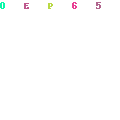Poetry is an unparalleled form of communication.
You may say, ‘It’s a nice day today.’ Or you may say,
‘Today, the sky smiled at me, and my heart escaped into the sun’s warm embrace.’
Both sentences describe the day; but the second is more memorable.
I’ve always been fascinated by the musicality of words. Music in itself, is my happy place. I listen to rap, love songs from the eighties and gospel music, while I’m in the bathroom. And I often follow leading poets and speakers on YouTube. I’m restless, when it comes to immersing myself in poetry. I take risks when it comes to speaking and creating. From working on radio, where I felt at home, from 6:00am to 10:00am every weekday, I woke up Kampala City.
The term, ‘Morning Person,’ suited me, and I have since then relished waking up from 3am to 5am, starting the day with verve and prayer. There are countless reasons I could complain; aren’t there always. Truthfully though, the lockdown has placed my mind into a space where I am only able to receive abundance. Starting with videos posted on my growing YouTube channel (35 subscribers, as of 15 August 2020), then growing clientele for my public speaking training sessions, and above all, a heightened sense of purpose. By purpose, I don’t mean that short-lived superficial fuzzy feeling when you’re walking in a daze. I mean the grounded and consistent meaningful purpose, which despite what life may throw, I keep going. I could never have learned this on my own. Gratitude goes to individual advisors; those living across the ocean, and those nearby. There are a handful, but the calls, messages, and emails, are a constant motivation and blessing.

I pray too; not as often as I used to, because I want to do more receiving of the things I’ve been praying for, over the decades. I do pray, though and read the bible, at least three times a week. Listening to audio-visual sermons are important, too.
The lockdown has been my ultimate happy place, over the past few months. Saying that with the knowledge of the devastation it has caused businesses, I’d be frugal not to share how I’ve been blessed. I don’t mean the kind of blessing that undermines others’ challenges, or undermines others’ struggles and honest hard work. I mean the blessing that keeps on appearing, as a reminder that God is actually in my life.
It’s been a life of hills and valleys, the past 44 years; but during the lockdown, I had to kick the consistent roller-coaster of highs and endless lows, in the groin. I had had enough. Just as one challenge was closed, another fifteen would reappear, and some so subtle, like a dormant volcano, erupting in the most unusual of places, disrupting my short-lived bliss.
I’ve been blessed towards a sharp sense of realization. I had been missing it all along. There have been warning signs blaring red; for so long, but can’t be ignored.
Amongst them are:-
I need to follow my gut; always. This could be the prompting of the Holy Spirit, God’s leading, but ALWAYS. Whenever I haven’t, it’s been disastrous.
God, first thing when I wake up; no matter the deadlines.
Small things like someone arriving late for a meeting continuously; I should never ever work with them, since they have no respect for time, or work ethic.
If someone constantly talks about themselves and never acknowledges my own story, or voice, that is a clear sign that they have no interest in me.
If someone shares my ideas on social media; with no explanation from where it originated, it reflects a level of narcissism and lack of originality that should be avoided like a plague.
If someone keeps complaining about others; both online and offline, then they’ll complain, whine and gossip about me too.
If someone uses friendship or sisterhood, to get out of payment for my professional services, then that sisterhood may as well turn into nothinghood.
If someone uses Christianity to perpetuate misogyny and sexual abuse, then I need to flee, and warn all the people within a 1,000 mile radius.
Don’t chase people. Don’t put them on a pedestal Challenge them. If you place someone on a pedestal and show them you’re in constant awe, they will hardly respect you and only see you as a fan.
These are just a few.
Being in lockdown has given me significant time to reflect, and introspection is something I never shy from. I have diaries full of my thoughts and lessons learned, in quiet moments.

The spread in The Full Monitor, Saturday 15 August 2020, is part of the story, and part of the promise from God. He and I spent copious amounts of time talking, or maybe I did more of the talking. He knows I need this, and more. I know it’s time for change. I’m enjoying the process.













